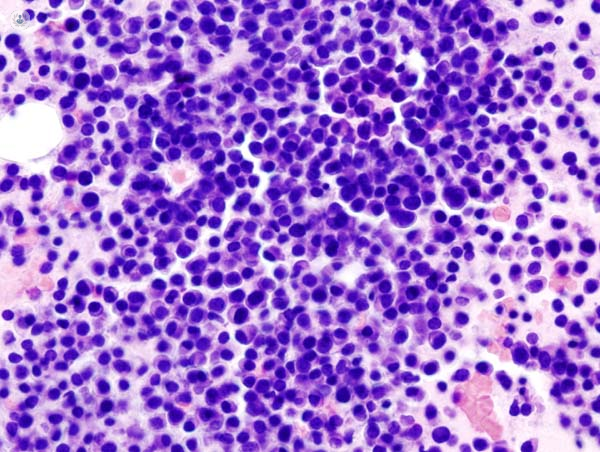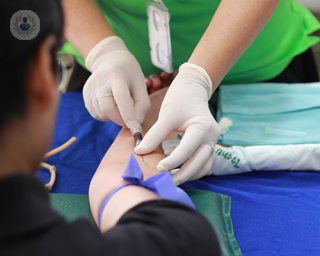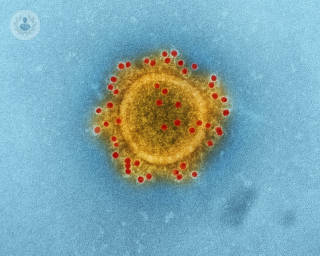Multiple myeloma
Dr Michael Potter - Haematology
Created on: 03-12-2013
Updated on: 10-02-2023
Edited by: Aoife Maguire
What is multiple myeloma?
Multiple myeloma is a type of cancer that affects plasma cells, a type of white blood cell responsible for producing large volumes of antibodies to fight infections. Myeloma starts with a malignant plasma cell in the bone marrow (the spongy centre of bones where blood cells are produced from the body’s natural stem cells).
The cancer divides and multiplies until it crowds out the healthy blood cells. It produces abnormal proteins instead of antibodies, which cause complications and leave the patient more vulnerable to infection.
It is known as multiple myeloma because the cancer frequently affects multiple parts of the body, for example, the spine, skull, ribs and pelvis.

What are the symptoms of multiple myeloma?
The main symptom of multiple myeloma is bone pain, most commonly in the spine and ribs. Other symptoms include:
- Fragile bones that break easily.
- Tiredness, weakness, palpitations, dizziness, shortness of breath – these are all symptoms of anaemia caused by the myeloma blocking the production of red blood cells in the bone marrow.
- Repeated infections – the immune system is impaired by the myeloma blocking the production of healthy white blood cells in the bone marrow and producing abnormal proteins instead of antibodies.
- Weight loss.
- Unusual bruising or bleeding.
Causes of multiple myeloma
It is not clear what causes multiple myeloma; however, several risk factors have been identified:
- Age – most patients are diagnosed in their mid-60s, while it is almost unheard of under the age of 40.
- Gender – it is more common in men than women.
- Race – multiple myeloma is around twice as common in black people as white or Asian populations.
- Family history – people whose close relatives have been diagnosed with multiple myeloma have a higher risk of developing the condition themselves.
- MGUS (monoclonal gammopathy of unknown significance) – this relatively benign condition appears to be associated with the development of multiple myeloma. MGUS involves an excess of proteins called immunoglobulins in the blood. It doesn’t cause symptoms and doesn’t require treatment; however around 1% of people with MGUS go on to develop myeloma.
Can it be prevented?
There is no way to prevent multiple myeloma, but the earlier it is detected, the most effectively it can be treated. It is recommended that patients with MGUS have regular screenings for multiple myeloma for this reason.
What is the treatment for multiple myeloma?
Most cases of multiple myeloma can’t be cured; however research is ongoing to find new treatments. Current treatments can help to control the condition and manage the symptoms.
Treatment options include:
- Anti-myeloma medication to destroy the myeloma cells and control relapses.
- Chemotherapy
- Radiotherapy
- Biological therapy
- Corticosteroids
- Bone marrow transplant
A haematologist treats multiple myeloma.















